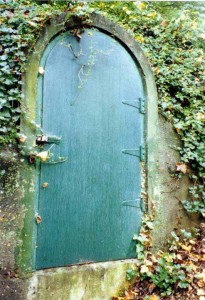January 27, 2013 — Today is Mozart’s birthday – Wolfgang Amadeus, that is, not me. He would be 257. He lived 14 percent of that age. He died December 5, a recurring date of the ending of things in my own life. Today is my brother’s birthday, too. He’s lived nearly twice the years as Mozart. The two share a common love for music. My brother, from about age 3, sat at the piano, as did Mozart. He composed, too – pieces from a series my family called “Hammering on the Keyboard”.
I watched Dustin Hoffman discussing in conversation with Charlie Rose the other night the 2012 movie he has directed, “Quartet,” starring Maggie Smith, Tom Courtenay, and other greats. This movie is about the unintended reunion of four aging opera singers, based on a play and script by Ronald Harwood. Harwood was inspired by Giuseppe Verdi’s “Bella figlia dell’amore” quartet, which he considers one of the most beautiful pieces of music ever written for the human voice, from “Rigoletto.”
Of my favorite Charlie Rose conversations are those with Dustin Hoffman. He is an entertaining conversationalist and Rose lets him run on. As I laid my head on my pillow to sleep at 1 a.m. when the TV show ended, I found my cheeks aching from smiling broadly for an hour.
Those of us in our 60s and 70s know how hard it is to find work, no matter how high our achievements and level of education. Hoffman, who is four years older than I, talked about the declining availability of roles for actors as they age, of the short career span of a singer, dancer or an athlete. The actor who romanced Mrs. Robinson talked about how fleeting is life and the wisdom not to waste it. Jane Fonda, born the same year as Hoffman, writes in her book, Prime Time, about the poignancy of the third and final act of one’s life, those years over age 60: relationships become deeper, you realize that it’s the little things that are meaningful, and you have the experience to know that you’ll get through the current crisis somehow. Don’t waste time, live life, fulfill your dreams. I’ve lived a full life, but I’ve also wasted time, discarded opportunities, as I see it. But, all the evidence isn’t in yet, so I cannot judge. It may be that I have composed my life as I needed, that the related early expositional and variational movements developed the requisite preparation for the resolution at my finale.
A friend once told me, “You are always right where you need to be, doing what you need to do at that moment.” I find that thought comforting.
There’s another movie out about music and aging, with almost the same title, “A Late Quartet,” directed by Yaron Zilberman, one of the writers, and inspired by Beethoven’s late composition, String Quartet No. 14 in C sharp minor (Op. 131), a long piece, the seven movements of which are played without pause. The piece is recognized in music circles for its air of finality, so prompting Franz Schubert to remark, “After this, what is left for us to write?” “A Late Quartet” tells of an aging chamber group, and stars Christopher Walken and Philip Seymour Hoffman, among others.
My information about these two movies, besides from Dustin Hoffman, I took from two New York Times stories, “Two Films in Which Classical Music Is Much More Than a Score” by Michael Cieply, October 31, 2012, and “A Rigoletto Reunion Just Might Save the Day,” by A. O. Scott, January 10, 2013.
The former story cites the Guarneri String Quartet. Among my favorites, I wanted to read more about them, so I clicked on the newspaper link. I learned that, formed in 1964, once considered the world’s finest string quartet, to my disappointment they retired in the fall of 2009. A founding member, cellist David Soyer, died in 2010.
Everybody gets old. Everybody dies. From the instant you are born your whole life is a prelude to your death. You could die between notes, between breaths in the middle of the night while you are sleeping. This scenario, in my third act upstaging my earlier life, prompts me to reflect on what I do, how and what I think, and how I use my time. No matter how conscientious I am, though, I am always behind on emails; so I hope you will have patience.
Born October 10, 1813, nearly 200 years ago, composer Giuseppe Verdi died on the 27th of January 1901. Before his death, he established a retirement home in Milan for musicians, called Casa di Riposo per Musicisti, known as Casa Verdi. The home did not open until after his death because he did not want the acclaim.A documentary was made about Casa Verdi in 1984, titled “Tosca’s Kiss.” It is currently unavailable except from a handful of sellers in the UK. On seeing the documentary, “60 Minutes”, with Morley Safer, produced a 1987 story on it. I am keeping this post short because I think you may want to watch this touching piece. If you have 14.25 minutes, grab a tissue and click on this link: http://www.cbsnews.com/video/watch/?id=6282135n
—Samantha Mozart





